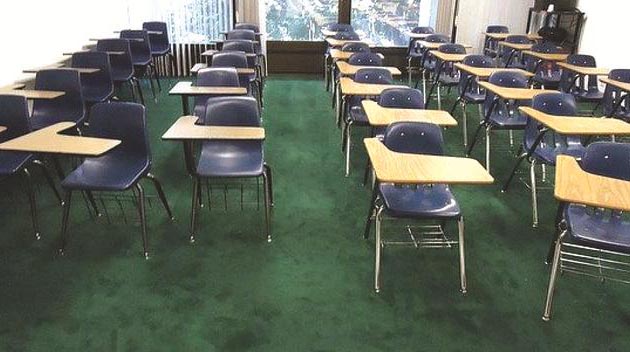Zimbabwe’s education sector continues to collapse at all levels due to the prolonged economic crisis, poor funding and neglect, teachers are resigning en masse, the Amalgamated Rural Teachers’ Union says.
Teachers are resigning to due to low salaries and poor working conditions.
They earn an average of US$300 a month and have for sometime been demanding in vain the US$540 that they were earning before President Emmerson Mnangagwa came to power through a coup in November 2017.
Despite his disastrous failures the late former president Robert Mugabe paid teachers better than Mnangagwa.
Teachers say the protracted and deepening economic crisis is contributing to a continuous and devastating decline in the quality of education at most schools.
The reality is that there are tens of thousands of primary school kids who cannot even read, write, or speak English – which is the main official language and the medium of instruction- after seven years of primary education.
According to Unicef, children from disadvantaged backgrounds are badly marginalised not only in access to and completion of education but also in terms of the quality of education.
Over 67% of Zimbabwe’s school children do not have access to holistic, quality education that will ensure they can reach their full potential.
The majority of Zimbabwean learners in both primary and secondary schools still receive a traditional rote education, not in line with the needs of a developing economy.
Most of these learners live in marginalised rural areas and high density suburbs, which lack basic infrastructure, such as running water, electricity and computers.
Additionally, they face enormous hardships, such as poverty, hunger, trauma, and school systems that do not provide them with the education that they need to escape poverty and build a better future.
Political and economic instability has also had a negative impact on government revenues and this has resulted in underfunding of essential educational services. Additionally, thousands of teachers left the country to escape economic collapse.
Even colleges and universities face the same plight which is crippling their capacity to deliver quality education.
The University of Zimbabwe, the country’s leading institution of higher learning, for instance, is now ranked No. 44 out of 200 universities in Africa, with the University of Cape Town always leading. UZ used to be in the Top 20.
“Sad to note that our office is inundated with calls from members who are asking for advice on how to resign.
Teachers are quitting in numbers because of underpayment.
Government must pay a living wage and avail tuition grants to schools,” the Amalgamated Rural Teachers Union says.
Newshawks













